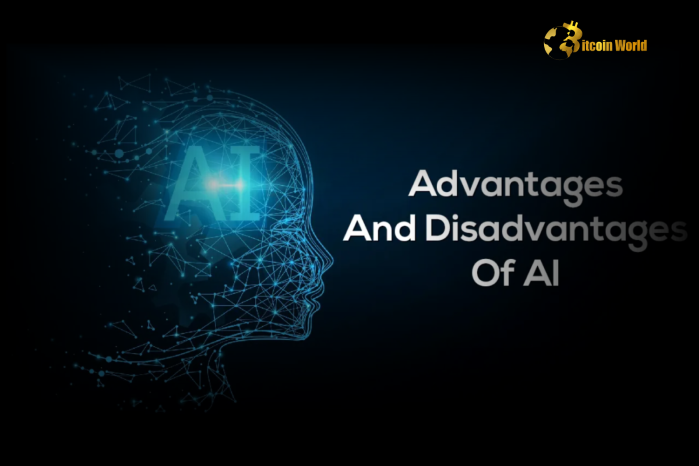Advantages and Disadvantages of AI
Artificial Intelligence (AI) has transformed the way we live, work, and interact with technology. While it offers incredible benefits such as automation, efficiency, and innovation, it also brings challenges like job displacement and ethical concerns. Understanding the pros and cons of AI is essential for leveraging its potential while addressing its risks.
Advantages of AI
1. Automation of Repetitive Tasks
AI excels at automating mundane and repetitive tasks, saving time and resources.
- Example: AI chatbots handling customer inquiries 24/7.
2. Enhanced Efficiency
AI-powered systems process data faster and more accurately than humans, boosting productivity.
- Example: AI algorithms analyzing medical images for faster diagnoses.
3. Cost Savings
By automating processes, businesses can reduce labor costs and operational expenses.
- Example: AI-driven logistics optimizing supply chain management.
4. Innovation and Creativity
Generative AI creates new opportunities for design, art, and content creation.
- Example: AI tools like DALL·E generating images from text prompts.
5. Personalization
AI tailors experiences based on individual preferences, enhancing user satisfaction.
- Example: Netflix recommending shows based on viewing history.
6. Improved Decision-Making
AI analyzes large datasets to provide actionable insights, aiding better decision-making.
- Example: Predictive analytics in financial markets.
7. Accessibility
AI-powered tools assist people with disabilities, improving inclusivity.
- Example: Voice recognition systems for visually impaired users.
Disadvantages of AI
1. Job Displacement
Automation can replace human jobs, particularly in repetitive or low-skill roles.
- Concern: Workers in manufacturing and customer service sectors face increased risk.
2. High Development Costs
Creating and maintaining AI systems can be expensive and resource-intensive.
- Challenge: Small businesses may struggle to adopt AI technologies.
3. Ethical Concerns
AI can perpetuate bias and discrimination if trained on biased data.
- Example: Hiring algorithms unfairly favoring certain demographics.
4. Privacy Issues
AI systems often require access to vast amounts of personal data, raising privacy concerns.
- Concern: Misuse of user data by organizations or hackers.
5. Dependence on Technology
Overreliance on AI can reduce human skills and critical thinking.
- Risk: Employees may lose problem-solving abilities as tasks become fully automated.
6. Lack of Transparency
AI models, especially deep learning systems, operate as “black boxes,” making their decision-making processes hard to interpret.
- Challenge: Ensuring accountability for AI-driven decisions.
7. Security Risks
AI systems are vulnerable to cyberattacks, which can lead to significant disruptions.
- Example: AI-powered drones or autonomous vehicles being hacked.
AI in Society: Balancing Pros and Cons
Opportunities:
- AI can revolutionize industries, from healthcare to transportation, creating new possibilities for growth and innovation.
- It enables humanity to tackle complex problems like climate change and disease outbreaks.
Challenges:
- Ethical frameworks and regulations are needed to prevent misuse and ensure fairness.
- Collaboration between governments, businesses, and researchers is essential to maximize benefits while mitigating risks.
FAQs About AI’s Advantages and Disadvantages
1. What are the biggest benefits of AI?
AI enhances efficiency, automates repetitive tasks, and provides personalized experiences, making processes faster and more cost-effective.
2. What are the main drawbacks of AI?
AI poses risks like job displacement, ethical issues, high development costs, and privacy concerns.
3. How does AI affect jobs?
AI can replace repetitive roles but also creates opportunities for new, high-skill jobs in tech and data analytics.
4. Can AI operate without human intervention?
While AI systems can automate many tasks, human oversight is essential to ensure accuracy and accountability.
5. How can we address AI’s disadvantages?
Implementing ethical guidelines, transparent algorithms, and robust cybersecurity measures can help mitigate risks.
Conclusion
The advantages and disadvantages of AI highlight its transformative potential and associated challenges. While AI drives efficiency, innovation, and personalization, it also raises concerns about privacy, ethics, and job displacement. By addressing these challenges through thoughtful regulation and collaboration, society can harness AI’s power responsibly and inclusively.
For more insights, explore our guide on AI’s Role in Modern Society and the Workplace.
Disclaimer: The information provided is not trading advice, Bitcoinworld.co.in holds no liability for any investments made based on the information provided on this page. We strongly recommend independent research and/or consultation with a qualified professional before making any investment decisions.




